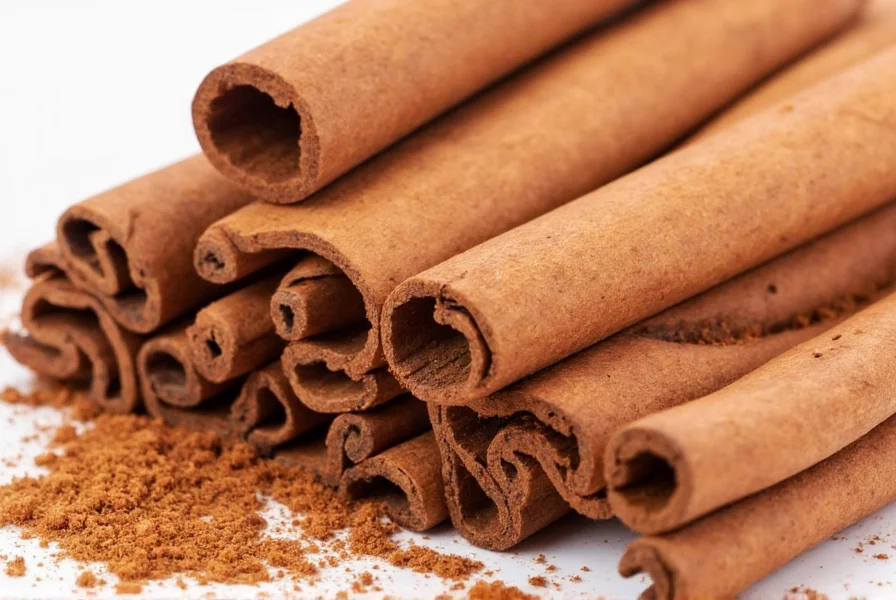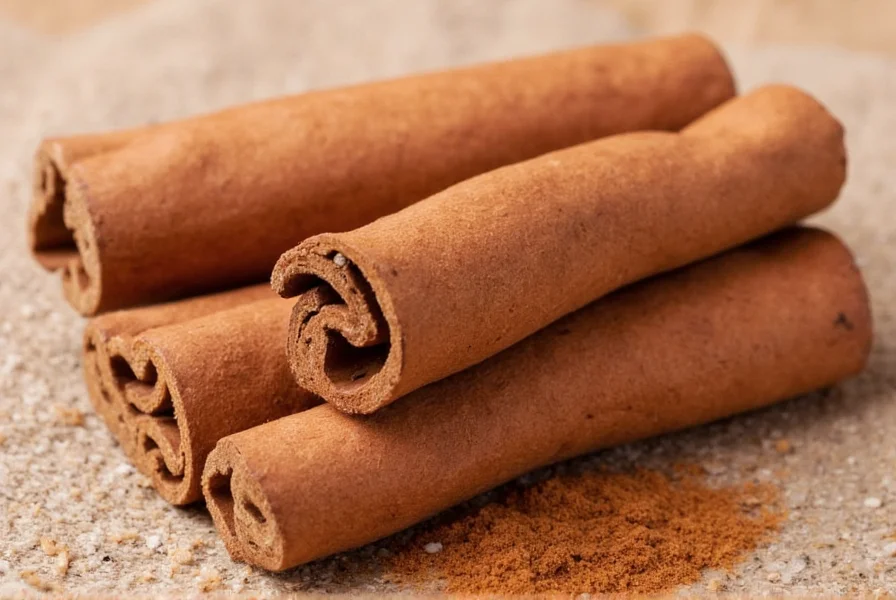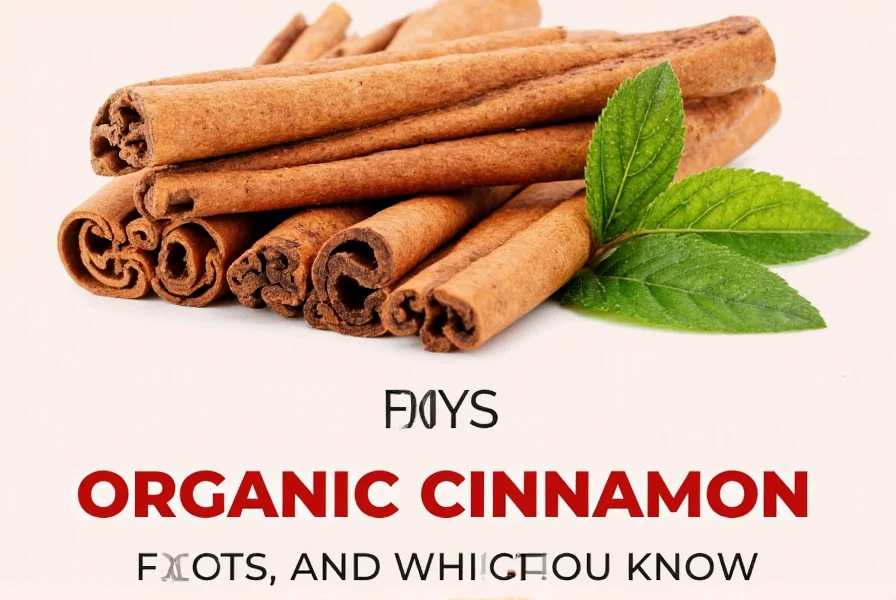When you reach for that jar of organic cinnamon, you're choosing more than just a spice—you're supporting agricultural practices that prioritize environmental sustainability and reduced chemical exposure. Unlike conventional cinnamon, which may be treated with synthetic pesticides and fertilizers, organic cinnamon must meet strict certification standards throughout its entire production chain, from farm to shelf.
What Truly Defines Organic Cinnamon
Organic cinnamon certification requires adherence to specific farming and processing protocols that vary slightly by region but share core principles. In the United States, USDA Organic certification mandates that cinnamon:
- Grows on farms using natural pest control methods instead of synthetic pesticides
- Is cultivated in soil that hasn't been treated with prohibited substances for at least three years
- Undergoes processing without artificial preservatives, colors, or flavors
- Is stored and transported separately from conventionally produced spices
- Maintains documentation throughout the supply chain for traceability
Similar standards exist globally through certifications like EU Organic, Canada Organic, and others, though specific requirements may differ slightly. The key distinction in organic cinnamon vs conventional lies not in the cinnamon itself but in how it's grown and handled.

Ceylon vs. Cassia: The Organic Perspective
Understanding the difference between organic and regular cinnamon becomes more nuanced when considering cinnamon varieties. Most cinnamon sold globally is Cassia (from China or Indonesia), while true Ceylon cinnamon (from Sri Lanka) is less common but contains significantly lower levels of coumarin—a compound that can be harmful in large quantities.
| Characteristic | Ceylon Cinnamon (Organic) | Cassia Cinnamon (Organic) |
|---|---|---|
| Coumarin Content | Very low (0.004%)—safer for regular consumption | High (1-5%)—limit regular intake |
| Availability | Less common, often more expensive | Widely available, more affordable |
| Flavor Profile | Milder, sweeter, more complex | Stronger, spicier, more intense |
| Organic Certification | Available but less common | More widely available in organic form |
When evaluating is organic cinnamon worth the extra cost, consider that organic Ceylon cinnamon represents the premium option for health-conscious consumers, combining lower coumarin levels with organic farming practices. However, organic Cassia remains the most accessible organic option for everyday use.
Understanding Organic Certification Labels
Not all "organic" labels mean the same thing. Familiarize yourself with these common designations when shopping for organic cinnamon:
- "Certified Organic" (USDA, EU Organic, etc.): Meets strict government-regulated standards with at least 95% organic ingredients
- "Made with Organic Ingredients": Contains 70-95% organic ingredients but cannot display the official organic seal
- "Organic" without certification seal: May indicate less than 70% organic content and lacks third-party verification
The presence of a legitimate certification logo (like the USDA Organic seal) indicates that an independent agency has verified the product meets organic standards. This addresses the common question about how to identify real organic cinnamon—always look for the certification seal from a recognized authority.
Practical Benefits of Choosing Organic Cinnamon
When considering organic cinnamon health benefits, it's important to separate verified facts from marketing claims. Research indicates:
- Organic cinnamon typically contains lower pesticide residues than conventionally grown varieties
- Organic farming practices support soil health and biodiversity in cinnamon-growing regions
- No significant difference in nutritional content compared to conventional cinnamon of the same variety
- Some studies suggest organic spices may retain slightly higher antioxidant levels due to farming stressors
The primary advantage isn't necessarily enhanced health properties of the cinnamon itself, but rather reduced exposure to agricultural chemicals. For those concerned about difference between organic and regular cinnamon regarding safety, the most significant factor is the assurance of no synthetic pesticide residues.

Using Organic Cinnamon Effectively in Your Kitchen
Organic cinnamon performs identically to conventional cinnamon in recipes, but its premium nature suggests some best practices:
- Store in an airtight container away from light and heat to preserve volatile oils
- Buy whole cinnamon sticks when possible and grind as needed for maximum freshness
- Use organic Ceylon for daily consumption, especially for children or regular use
- Reserve organic Cassia for recipes requiring its stronger flavor profile
- Consider the source when purchasing—reputable brands provide transparency about origin
When exploring best organic cinnamon for cooking, remember that Ceylon's delicate flavor shines in desserts and beverages, while Cassia works better in robust dishes like curries or hearty baked goods.
Addressing Common Misconceptions
Several myths persist about organic cinnamon that deserve clarification:
- Myth: Organic cinnamon has significantly higher antioxidant levels
- Reality: While farming methods can influence phytochemical production, the difference is marginal compared to the variation between Ceylon and Cassia varieties
- Myth: Organic certification guarantees superior flavor
- Reality: Flavor depends more on cinnamon variety, freshness, and growing conditions than organic status
- Myth: All "natural" cinnamon is organic
- Reality: "Natural" is an unregulated term with no standardized meaning in spice production
Understanding these facts helps answer the practical question of is organic cinnamon worth the extra cost for your specific needs and values.
Frequently Asked Questions
Does organic cinnamon have health benefits over regular cinnamon?
Organic cinnamon doesn't inherently contain different health-promoting compounds than conventional cinnamon of the same variety. The primary benefit is reduced exposure to synthetic pesticides and agricultural chemicals. Both organic and conventional cinnamon contain similar levels of beneficial compounds like cinnamaldehyde and antioxidants, with the main differences relating to farming practices rather than chemical composition.
How can I verify if my cinnamon is truly organic?
Look for official certification seals from recognized organizations like USDA Organic, EU Organic, or Canada Organic. These seals indicate third-party verification of organic standards. Check the certification number on the packaging, which you can verify through the certifying agency's website. Reputable brands also provide transparency about their supply chain and farming practices on their websites.
Is organic cinnamon worth the higher price?
Whether organic cinnamon is worth the extra cost depends on your priorities. If reducing pesticide exposure and supporting sustainable farming practices are important to you, then yes. Organic cinnamon typically costs 20-50% more than conventional. For occasional use, the difference may be negligible, but for daily consumption—especially for children or pregnant women—the reduced chemical exposure may justify the premium.
Does organic cinnamon taste different from regular cinnamon?
Organic cinnamon doesn't inherently taste different from conventional cinnamon of the same variety (Ceylon or Cassia). Any flavor differences are more likely due to freshness, growing conditions, or processing methods rather than organic status. Some consumers report subtle differences in flavor complexity, possibly related to soil health in organic farming, but this is subjective and not scientifically proven.
Which type of organic cinnamon is safest for regular consumption?
Organic Ceylon cinnamon is generally considered safest for regular consumption because it contains significantly lower levels of coumarin (a compound that can affect liver function in large quantities) compared to Cassia varieties. While both organic Ceylon and organic Cassia are safe in moderate amounts, those who consume cinnamon daily—such as in smoothies or supplements—should opt for Ceylon to avoid potential coumarin accumulation.











 浙公网安备
33010002000092号
浙公网安备
33010002000092号 浙B2-20120091-4
浙B2-20120091-4